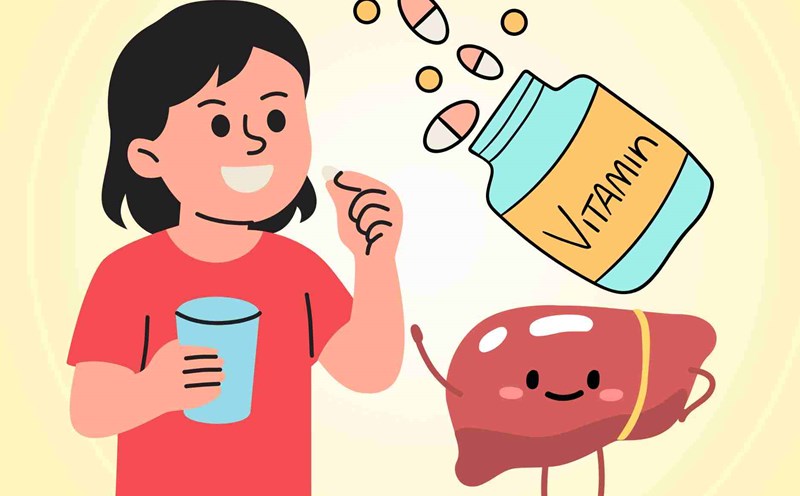Many vitamins do not really work?
Synthetic vitamins are one of the most popular supplements, but studies show little clear evidence that they help reduce the risk of disease or prolong life in healthy adults.
The US Preventive Services Special Forces (USPSTF) even recommend not to use vitamin E and beta carotene to prevent heart disease or cancer.
Vitamin E does not have the cardioprotective or anti-cancer effects that many people expect, says Dr John Wong, a medical professor at Tufts University (USA) and a member of the USPSTF. He also said that beta carotene supplements, a precursor to vitamin A, can increase the risk of lung cancer in smokers or those exposed to amian.
In addition, some supplements can interact with prescription drugs. For example, Ban Au tree (St. John's Wort) - a popular herb in treating depression - may reduce the effectiveness of birth control pills.
Even if it is not harmful, supplementing too many vitamins is still unnecessary, because the body will not absorb all of them. If you have a balanced diet, taking extra vitamins usually only costs you money without any added benefits, Wong added.
Why do people still believe in supplements
Despite the lack of scientific evidence, Americans still spend billions of dollars a year on supplements.
People like what they can hold, says nutritionist Melissa Majumdar, curator of bariatric surgery at Emory Midtown Hospital. Taking a medicine makes it easier to maintain a healthy diet and make lifestyle changes.
However, consumers should be cautious with misunderstanding labels. The US Food and Drug Administration (FDA) does not assess the safety or effectiveness of most supplements. Some products even advertise falsely as "no side effects" or "better than prescription drugs".
When should you take vitamin supplements?
According to the USPSTF's recommendation, some supplements are necessary for special groups. Folic acid (vitamin B9) is very important for pregnant women, helping to prevent neural tube defects in the fetus.
In addition, vitamin D is also a nutrient that is difficult to absorb through food and sunlight, especially for people with dark skin, living at high latitudes or at least outdoors.
Vitamin D deficiency is quite common, but overdose can cause kidney stones, confusion or nausea, says Dr. Emma Laing, clinical professor at the University of Georgia (USA). It is best to check your blood before taking a supplement.
Experts agree that, instead of relying on pills, the best way to protect your health is to eat a balanced diet, exercise regularly and get enough sleep, the "natural medications" that no supplements can replace.











